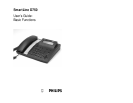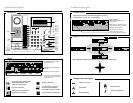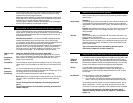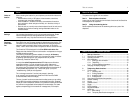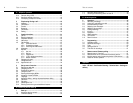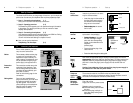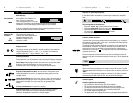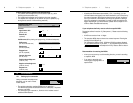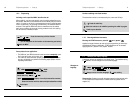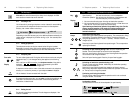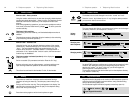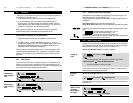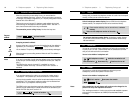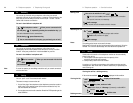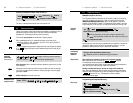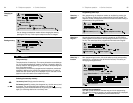
10
Telephone operation: 1 Start up 11Telephone operation: 1 Start up
Changeover
language
-
-
Input PIN -
change over to the other language - store setting
1.3.2 Telephoning
Initiating a call: a specified MSN identifies the call
When calling, you can now specify which multiple subscriber num-
ber (MSN) that will be the transferred to the called party as identifi-
cation. In order to do this the corresponding function must be assig-
ned to a name key; on pressing the name key the desired MSN is
entered. This specific MSN will then be transferred to the called
party when making the next call; having made this call, the setting
will be reset to the default value.
or Press the name key with the function
„
“
(for the assigment of the function to the name key, see below)
enter the MSN
Prerequisites for the application:
•
The MSN’s of your ISDN-connection must have been completely speci-
fied in the setup menu by the menu item „
“.
•
The name key must have been properly programmed (:applied as func-
tion key). Accordingly you perform the following steps (section 4 of the
Operating Instructions):
- - -
Confirm selection
Select name key:
or
(display of a multiple subscriber number)
Select the function with the desired multiple subscriber number.
Store input
Number redialling with lifted handset
The subscriber number is now selected by the cursor and OK keys.
- Press the redial key
Select the number to be redialled; pressing the redial key again.
Confirm your selection
1.3.3 Entering additional characters
Entering the DTMF characters „asterisk“
and „square“
Applies for keypad functions as well as for the programming of name keys
and telephone directory: additionally, DTMF-sequences can be entered,
applying also the „asterisk“ and „square“ buttons.
1.4 Changing the display language
2 language variants are available for the display texts: The standard setting
is
=German. You can change over to the other language:
Please notice: Changing to english language causes that the national prefix
will be erased due to requirements in several countries (please refer to
chapter 5.4).



